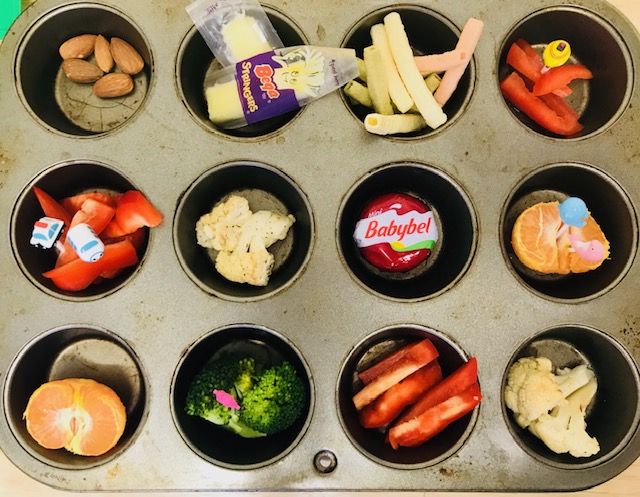
Practice made perfect is the title of a journal article published in 2008. Although this article is now 12 years old, it is a good one that gives us as therapists and parents important information about how a child learns about a food.

In our clinic, we often see children try a food once and then go home and refuse it. Parents come back to clinic disheartened that their child ‘didn’t like that food’.
But like anything in life, everything takes practice. I remember learning piano as a child, goodness those piano scales were hard and I hated practising them. But over the years, those scales became easier and I even grew to like a few of them much to my piano teacher’s surprise (I wasn’t the most dedicated student).
So why, do we expect children to learn to like a new food straight away?
In this 2008 study by Keith Williams and his team, they review a clinical sample in a longitudinal study (looking over time) and find that each of the 6 children (aged 3-8 years old) required 10-15 presentations (sometimes more) to meet “mastery” (defined as 3 full spoonfuls of food in a meal or therapy session). And interestingly enough, there were many foods that required less than 10 presentations. The authors hypothesised that this could be due to the fact that the food “tasted good” to that child (makes sense), they also noted that hunger was a motivating fact in the consumption of the new food. All of these kids were restricted picky eaters (beige crunchy food eaters) and the novel foods included foods from all food groups (fruits, vegetables, meat, dairy and starches).

3 really important things to note here…
- The kids were not eating a full serve of that food – just 3 full spoonfuls (mastery). In our clinic, we encourage all of the parents in the clinic to think about their expectations – if their child even nibbled a few pieces of corn, this is to be celebrated. But often parents feel failure that their child didn’t eat the entire corn cob. But with repetition comes acceptance and with acceptance comes volume. So celebrate the small steps – they are big wins for kids.
- When the children were hungry, they were more likely to taste a new food – how many times do we give children other options (eg crunchy safe carbohydrates) when they refuse to eat their meal? or give them a huge serve of pasta (safe food) just so “they will eat something”.
- It took 10-15 presentations to gain acceptance (see mastery point above), both Ash and I have done some training with Dr Keith Williams, one of the authors of this study and he explained that the presentations must be “ingested” (i.e. kids need to eat and swallow it to count as a presentation) and secondly, the volume of that food need only be small (eg rice grain size) so in our clinic sessions, we definitely celebrate tiny tastes because with repetition, these tiny tastes eventually add up to 10-15 presentations and we know that this will increase the likelihood that the food will be accepted into a child’s diet.
Now, there are some cautions around this study – it was only a small sample size of 6 kids and ideally it would be great to have this study repeated with a bigger sample and a larger cross sectional group of children. But it is a valuable study to remind us all that just like my piano lessons, with practice, a child will learn to like a new food.

So parents can I ask you a favour please?
If your child tastes a new food – please don’t ask them if they like it? I didn’t like my piano scales, it was only with time and confidence (with lots of practice) that I learned to enjoy the experience of piano scales. While a musical instrument is not quite food, it really reminds us that with practice (and yes, sensory patterns and preferences, oral motor skills etc), children will slowly learn to like that food. But it won’t happen overnight and if you ask your child “do they like it?” – they will very likely say “no” and then you run the risk of them mentally shutting the door to that food and the practice aspect is now not an option.
Hope you start looking at “trying a new food” in a new light and remember -practice, practice and over time, this will gain acceptance.
Until then, wishing you happy and peaceful mealtimes
Val
Paediatric Feeding Speech Pathologist @ Let’s Eat! Paediatric Speech Pathology
Study cited:
Williams KE, Paul C, Pizzo B, Riegel K. Practice does make perfect. A longitudinal look at repeated taste exposure. Appetite. 2008 Nov;51(3):739-42. doi: 10.1016/j.appet.2008.05.063. Epub 2008 Jun 8. PMID: 18585415.
This website and information on this blog post is provided for educational purposes. It is not meant or intended to replace Speech Pathology assessment and management nor medical or nutritional care for a child. It is recommended that you discuss any concerns or questions you might have with your Speech Pathologist and managing Doctor and develop an individualised team plan specifically for your child.

About the author of this blog post
Valerie Gent is an Australian based Speech Pathologist with 17 years experience in Paediatric Feeding. She has opened a private practice called ‘Let’s Eat! Paediatric Speech Pathology’ in 2013 for Newcastle based babies and children with feeding difficulties. Ashleigh, joined Val in 2020 and now both of these passionate and experienced feeding therapists support children with all levels of feeding difficulties. You can find out more about the team and ‘Let’s Eat! Paediatric Speech Pathology’ via their website www.letseatspeech.com.au and Facebook page www.facebook.com/LetsEatPaediatric SpeechPathology or email on valerie.gent@letseatspeech.com.au
